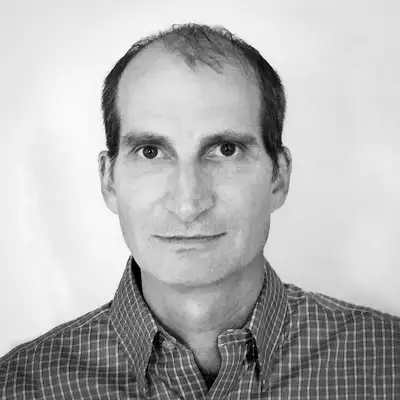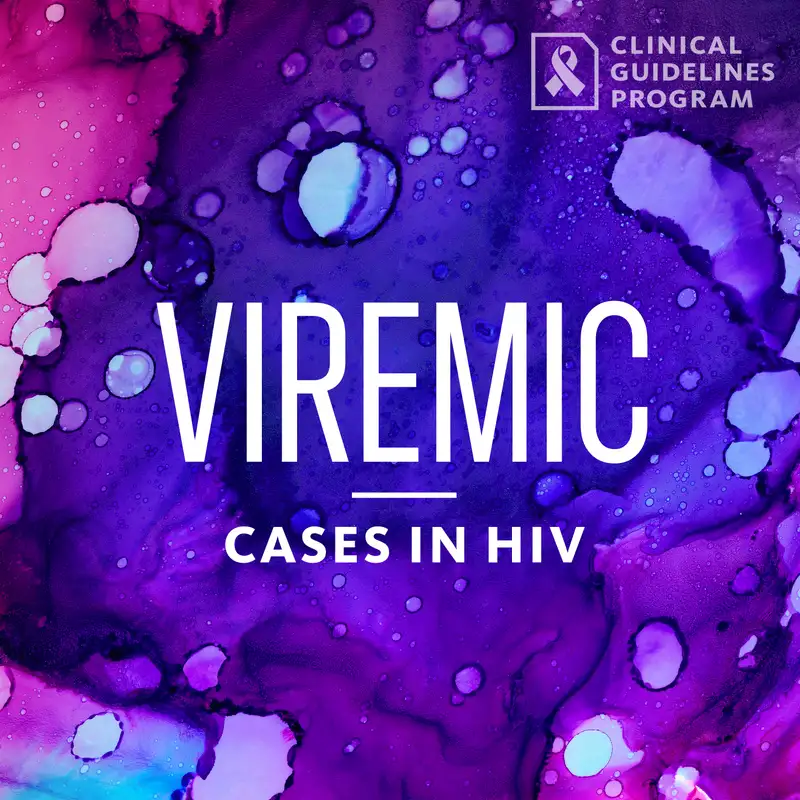About the Hosts


Hosts Eileen Scully and Christopher Hoffmann are both physicians with the Johns Hopkins Division of Infectious Diseases who specialize in adult HIV care. They share a dedication to HIV patient care and medical education to support continuity of excellence in HIV care, and they both enjoy medical podcasts. They shared a few details of their experience below.
How long have you been involved in HIV care at Hopkins?
Eileen: I’ve been an infectious diseases and HIV clinical care specialist since 2011 and at Hopkins since September 2016.
Chris: Since 2009.
Why did you choose this clinical specialty?
Eileen: I’ve been interested in infectious diseases for as long as I’ve been interested in medicine. I did think about other practice specialties, but I kept coming back to ID and specifically HIV. I love the long-term, continuous relationships that HIV care requires and the chance to meet patients where they are and work with them as whole people. Really, I think there’s no better area of medical practice. And my nerdy immunologist self loves the really interesting pathophysiology in HIV.
Chris: I became interested in HIV even before I was interested in medicine, early in the epidemic, while I was living and working in Eswatini (South Africa) and witnessing the increasing devastation of HIV. I love HIV care because it gives me the opportunity to support someone through the social, psychological, and medical aspects of their health journey and to provide compassionate and nuanced care to people living with a disease that is medical, social, and cultural.
Why have an HIV case-based podcast?
Eileen: I love talking about cases. Case-based learning helps clinicians integrate knowledge into practice. You can hear a list of facts, but when you meet a patient and have their story, that allows you to integrate the knowledge into your practice moving forward in a way that's really hard to accomplish with other types of learning. So I love talking about cases, and I think it’s an excellent way to learn and give as much as we can. In leading the weekly case presentation series for the Johns Hopkins Center for AIDS Research (CFAR), I always emphasize how evidence and guidelines inform clinical practice and patient care and how we can all learn from each other. I feel dedicated to carrying forward knowledge of how to care for people with HIV and extending that knowledge to clinicians in training. I love July in the hospital – it’s a joyful time to be in the hospital as new trainees arrive and bring their best to learning. I hope that our listeners will recognize some of their own clinical challenges in the podcast and find some useful discussion of data, new references to inform their care strategies, and a good overview of options for management of HIV.
Chris: I love case-based learning as medical education. I think it’s crucial for creating consistency in care across care providers. I think an HIV case-based podcast is a great opportunity to explore important clinical issues and highlight how the complexities of patients’ lives interact with the complexities of HIV and HIV clinical care. I enjoy listening to medical podcasts, and especially case-based podcasts, because they bring medicine and medical education to life. I hope that our listeners will feel part of a community, find validation of their practice, and find it valuable to hear other perspectives on optimizing HIV care management.
Why did the two of you decide to do this podcast together?
Eileen: I enjoy working with Chris because he has an amazing way of approaching data to build solid guidance. I've been excited to learn from him because some of his work in HIV and in general care provision focuses on what underlies why we make certain decisions and how we can actually change our practice to have a system that leads us to make better decisions.
Chris: I’m excited to work with Eileen because in leading the weekly case presentation series at Hopkins, she always does a great job of querying the presenters and highlighting key issues. I thought it could be great to share that experience with an audience beyond Hopkins, and I thought it could be helpful in educating clinicians about the guidelines not by telling about the guidelines and the evidence behind recommendations, but by showing how guidelines actually inform clinical practice and affect patient care. (Chris has been the Director of the Clinical Guidelines Program at Johns Hopkins for the past 15 of its 25 years.)
In addition to taking care of patients and training new clinicians, you’re both involved in HIV research—what’s the focus of your research?
Eileen: My research focuses on the immune system and its interaction with infectious diseases, including HIV; specifically, I study the differences in immune responses between men and women, and I do some work on HIV cure.
Chris: My research is focused on HIV care delivery and care engagement in sub-Saharan Africa, especially among more marginalized people, including individuals with a history of incarceration, young men, and people with advanced HIV disease.
Do you have a favorite podcast?
Eileen: A Slight Change of Plans and The Human Doctor.
Chris: Clinical Problem Solvers.
